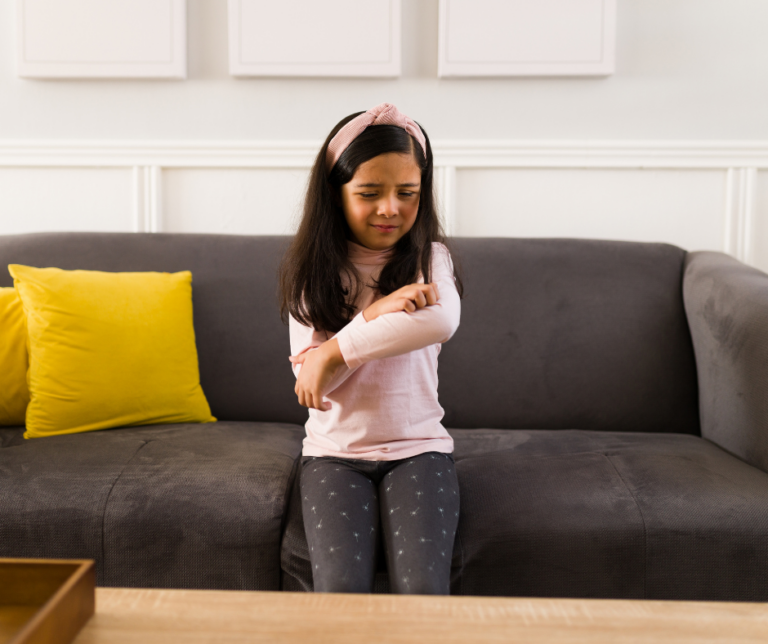Children and teens are experiencing unprecedented changes to their lives and routines during the COVID-19 pandemic. These challenges can lead to feelings of sadness, anxiety, and stress. While parents have received a lot of information on the physical effects of the disease and how to avoid exposure, they’ve been given little guidance on how to safeguard their family from the psychological and emotional effects of pandemic-related isolation. We’ve created this post to help parents navigate the impact of the “new normal” on our children’s mental health and well-being.
Togetherness
Focus on creating a positive home environment to help your children feel secure and confident in these uncertain times. With young children, parents should be available and in close proximity as much as possible. With school-aged children and adolescents, parents should schedule family time to nurture relationships and check in with their kids. Eat meals, play games and sports, watch movies, listen to music, and participate in outdoor activities and excursions together as a family.
Communication
Parents should engage in open and honest conversations with their children about the emotions they are feeling as a result of the pandemic. Understanding what they are feeling and why means that you can help them identify, express, and manage those feelings better.
Lead by example. While it may be tempting to hide your own emotions, sharing them with your children and showing them how you are addressing them models healthy coping behaviors.
But it isn’t always easy to get your kids to open up, and small children may have an especially hard time expressing themselves. Tune into your kid’s body language and behavior for helpful clues to figure out what they are feeling. Help your child name their feelings by giving them a label. This allows your child to develop an emotional vocabulary so they can talk about their feelings. Then praise your kid when they talk about their feelings or express them in an appropriate way to reinforce the behavior. One very helpful technique to help identify and express emotions is to create a Personal Weather Report.
Connection
Social connection is important, but pandemic-related restrictions on physical contact can limit your children’s opportunities to connect with their peers. Help your children stay connected with their friends and family members digitally by giving them access to video and online chat platforms. But don’t let your kids overdo it with devices. Be aware of how much time they are spending in front of a screen every day. Ensure that they take regular breaks from on-screen activities.
While video games can be a way to both relax and connect with friends, it is easy for kids to spend extended periods of time on them. Be sure to balance online and off-line activities in their daily routine.
Social media is a great way for older children to connect with others and share their lives through photos, videos and status updates. Teens describe these platforms as a key tool for connecting and maintaining relationships, being creative, and learning more about the world. But social media also exposes teens to mental health risks including peer pressure, cyberbullying, and jealousy. This can lead to depression, anxiety, and in some cases, suicidality, so it’s important to monitor and regulate their social media use.
As our area moves forward with phased reopening, families may choose to start to reinstitute playdates and allow older children to gather in groups with their peers. But for many families with higher risk members, children meeting in groups can put loved ones at risk. COVID infections are currently skyrocketing in teens and young adults.
If children are playing outside their own homes, they should ideally remain 6 feet from anyone who is not in their own household and wear a mask if over the age of 2.
Times of crisis can have long term effects on both your child’s behavior and their mental health. But with the right support, challenging times help build resiliency in children, giving them the ability to better handle stress and recover from setbacks.
From our blog- Raising Resilient Kids
While it’s normal for kids and teens to experience a wide range of emotions during uncertain times, children who experience prolonged depression and/or anxiety require professional assistance. If your child exhibits intense or extended fear, sadness, or stress related to the current pandemic, please contact their pediatrician.
Here are some helpful resources to offer additional support:
- Centers for Disease Control and Prevention (CDC) Resources on Mental Health and Coping, including People Helping Children
- Helping Kids Handle Pandemic Disappointments
- Helping Teens Deal with COVID-related Stress
- How to Help Someone with Anxiety or Depression During COVID-19
- How to Support a Loved One Going Through a Tough Time During COVID-19
- The PEAR Institute: COVID -19 Resources





